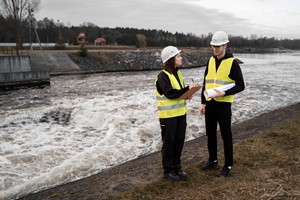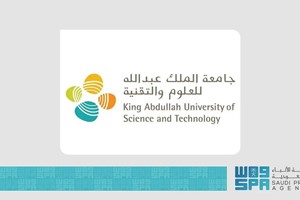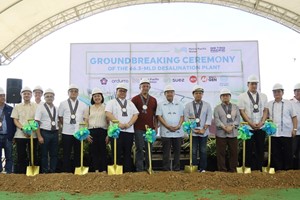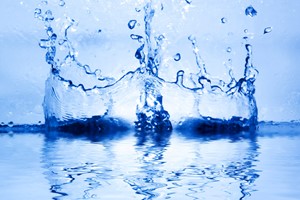The United Arab Emirates (UAE) relies heavily on desalination to supply potable water, given the region’s arid climate and limited freshwater resources. Most of the drinking water across the Emirates is sourced from desalinated seawater, making desalination plants a cornerstone of the nation’s water security strategy. As climate change intensifies water scarcity worldwide, ensuring a sustainable and efficient water supply is more crucial than ever. This aligns with the United Nations’ Sustainable Development Goals, which emphasize water accessibility as a global priority.
Currently, the World Resources Institute ranks the UAE as the 10th most water-stressed country out of 164 nations globally. With growing populations and increasing demand, mitigating water scarcity requires not only expanding water generation infrastructure but also addressing the substantial energy requirements for operating these facilities.
To achieve long-term sustainability, the UAE is investing in cutting-edge technologies that enhance water production while minimizing environmental impact. Modern desalination techniques offer promising solutions by improving energy efficiency and reducing carbon footprints.
Transforming Desalination with Reverse Osmosis Technology
Among the UAE’s latest advancements is the Taweelah desalination plant in Abu Dhabi, which will be the world’s largest seawater reverse osmosis (SWRO) facility upon completion. Unlike traditional thermal desalination, which consumes significant amounts of energy by evaporating seawater, reverse osmosis (RO) uses high-pressure membranes to filter out salts and impurities, making it a far more energy-efficient process.
The Taweelah plant, scheduled for completion in 2022, will have a daily production capacity of 909,200 cubic meters (m3/day), surpassing the current largest reverse osmosis facility’s capacity of 624,000 m3/day. This will provide clean water for approximately 350,000 households, marking a significant milestone in the UAE’s quest for sustainable water security.
The project is a testament to the UAE’s commitment to leveraging innovative solutions to enhance water supply while reducing environmental impact. By setting new benchmarks in size and cost efficiency, Taweelah demonstrates the potential for scaling up RO technology to meet growing demand sustainably.
Financing the Future of Water Security
Developing large-scale desalination projects requires extensive financial backing. The Taweelah plant exemplifies a successful public-private partnership (PPP), a model that has proven effective in enabling critical infrastructure worldwide. The tender to build, own, and operate the facility for 30 years was awarded to ACWA Power, a Saudi-based company specializing in power generation and water desalination projects.
A significant portion of the $869-million project cost was covered through senior project finance loans from a consortium of six lenders. Siemens Bank, a subsidiary of Siemens Financial Services (SFS), played a pivotal role as the Mandated Lead Arranger (MLA), contributing a substantial share of the financing.
Siemens’ involvement in Taweelah extends beyond financing. As a leading provider of digital industry solutions and smart infrastructure technologies, Siemens has integrated advanced automation and process optimization tools into the facility. These innovations enhance operational efficiency, reduce energy consumption, and ensure long-term reliability.
“The SFS participation in the debt finance motivated ACWA Power to facilitate an early and close engagement between the EPC Joint Venture partners and Siemens,” says Marcus Oates, Head of Vertical Sales of Digital Industry, Process Automation, Siemens UAE. By combining technology and financial expertise, Siemens plays a key role in bringing large-scale infrastructure projects to fruition.
Driving a Sustainable Water Transition in the Middle East
The Taweelah plant is the first desalination facility in Abu Dhabi to be constructed independently of a power plant. Traditionally, desalination plants in the region have been integrated with power stations, relying on excess heat from electricity generation for water production. However, this approach ties water production to energy demands, leading to inefficiencies, especially during periods of lower electricity consumption. By decoupling power and water production, Taweelah will help the UAE reduce gas consumption and lower carbon dioxide emissions, supporting the country’s broader sustainability goals.
Water desalination is vital to the long-term development of the Middle East, where freshwater resources are scarce. However, these projects are capital-intensive and require careful financial structuring. Siemens Financial Services’ (SFS) role in facilitating the Taweelah project underscores the importance of tailored financing solutions in enabling critical infrastructure development. By providing both technology and financing, Siemens offers a comprehensive approach that supports the UAE’s vision for a resilient and sustainable water supply.
As the UAE continues to address water scarcity through forward-thinking investments, the Taweelah plant serves as a model for other nations seeking to balance water security with environmental responsibility. By integrating advanced technologies with sustainable financing, projects like Taweelah pave the way for a future where clean water is accessible without compromising energy efficiency or ecological sustainability.
By Siobhan Smyth













